Asteroid Strikes: A Catalyst For Extinction Events?
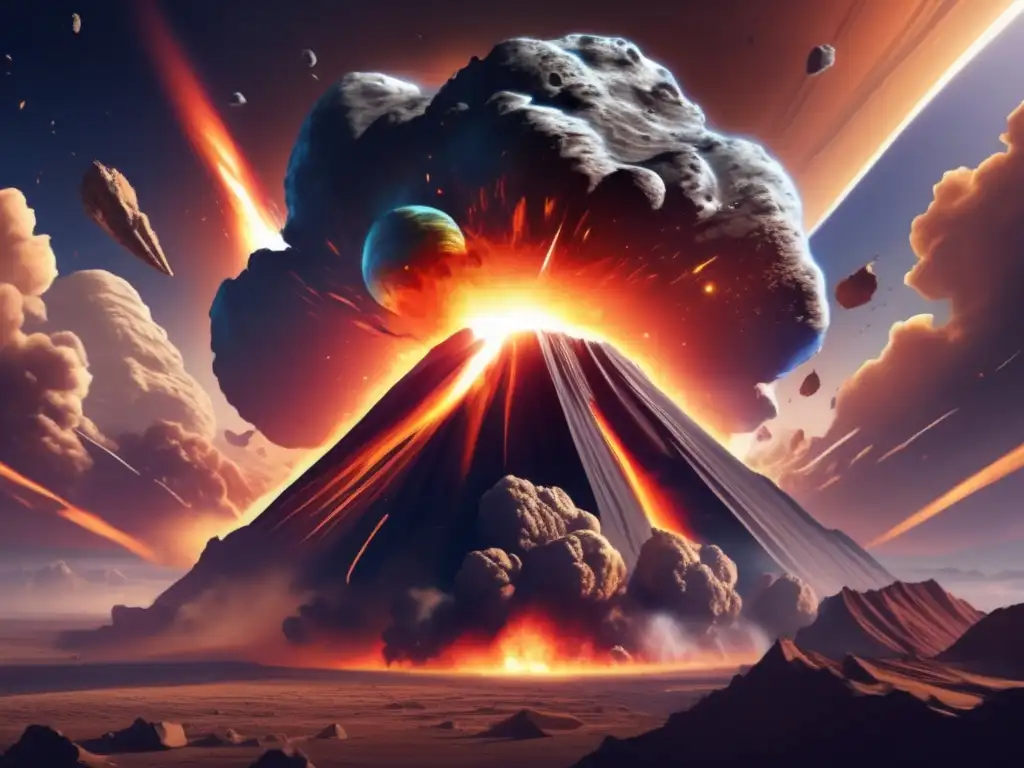
Introduction
Asteroid strikes have captured the imagination of humans for centuries. The potential impact that these celestial objects can have on our planet has been hypothesized by scientists and writers alike, leading to a wide range of theories and stories about their role in shaping Earth's history. In this article, we will explore the connection between asteroid strikes and extinction events, shedding light on some of the most significant impacts and their potential repercussions.
The Impact of Asteroids on the Earth's Ecosystems
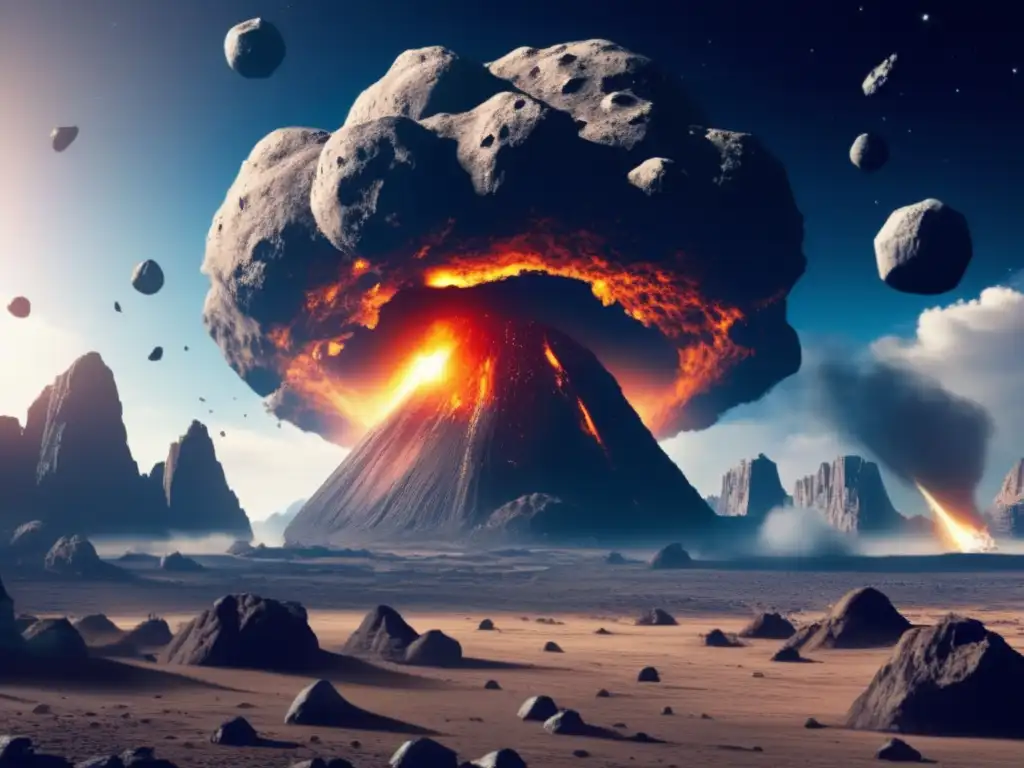
The Chicxulub Crater
The most significant asteroid impact in our planet's history is widely accepted to be the Chicxulub Crater, which was formed approximately 66 million years ago at the end of the Cretaceous period. This massive crater, which is located off the Gulf of Mexico, was created by an asteroid estimated to be around 10-15 km in diameter, traveling at a speed of 20-30 km/s. The impact caused a chain reaction of catastrophic events that eventually led to the extinction of the dinosaurs. The asteroid impact resulted in a massive release of energy, equivalent to billions of atomic bombs and creating massive fires and earthquakes. The global climate was changed drastically, with a blanket of dust and debris making the atmosphere thick and dark, preventing sunlight from reaching the ground for months on end. This event led to the extinction of around 75% of all species on Earth, paving the way for the rise of mammals as the dominant life form.
Other Possible Impacts
While the Chicxulub Crater is the most well-known example of an asteroid impact event leading to mass extinction, it is not the only one. Scientists have identified several other potential impacts that could have had catastrophic effects on the Earth's ecosystems. For instance, the impact of an asteroid approximately 35 million years ago led to a significant decline in deep-sea plankton, which caused a ripple effect throughout the entire food chain. Another potential impact that is still under investigation is the Zhamanshin Impact, which occurred approximately one million years ago in Kazakhstan. This massive impact left a crater over 14 km in diameter and might have played a role in the extinction of several species of large mammals at the time.
The Possibility of Future Impacts
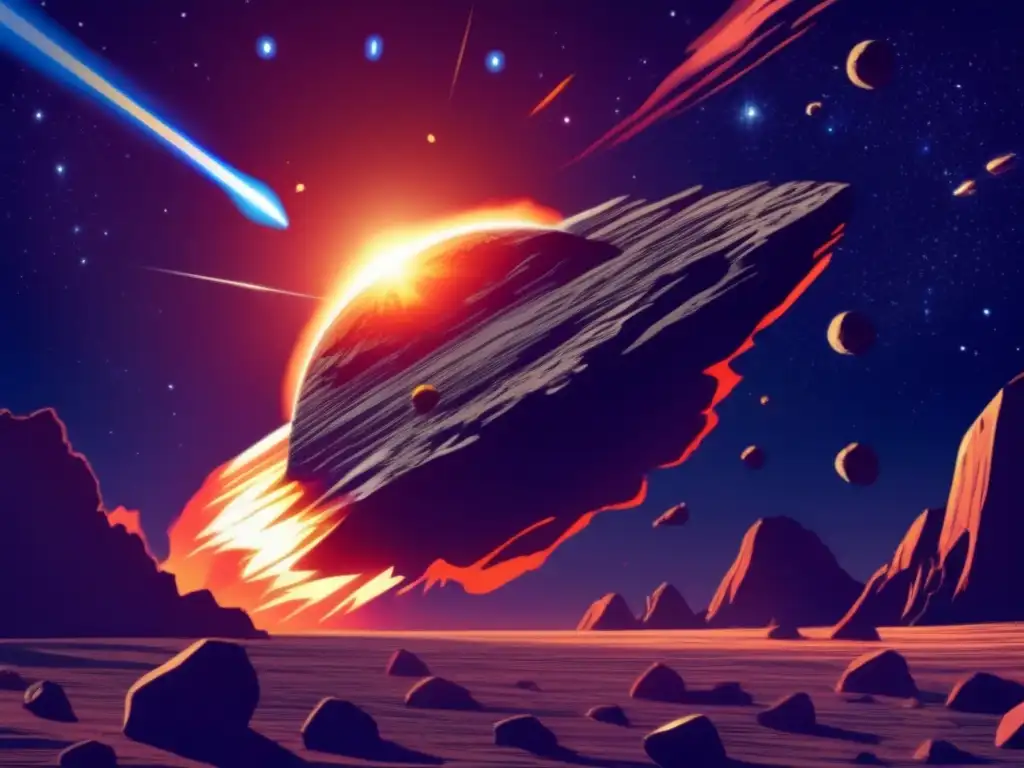
Asteroid Detection and Mitigation Efforts
While past asteroid impacts on Earth have been devastating, the possibility of similar events occurring in the future is still very much a reality. However, in recent years, there has been a concerted effort to detect and mitigate the impact of asteroids on our planet. NASA and other space agencies around the world are working on developing advanced telescopes and sensors to identify potential threats before they reach Earth. Additionally, there are ongoing efforts to develop technologies for deflecting or destroying incoming asteroids. Some of the methods being explored include using nuclear weapons, kinetic impactors, and gravity tractors.
The Importance of Preparedness
Despite all the progress made in detecting and mitigating asteroid impacts, there is still a long way to go. It's essential to be prepared for the worst-case scenario and make contingency plans in case an asteroid does strike the Earth. Governments and organizations should invest in emergency preparedness, including evacuation plans, disaster relief, and infrastructure development, to ensure that human life is protected in any eventuality. Furthermore, raising public awareness about the potential threats posed by asteroids can help galvanize support for research and development efforts aimed at minimizing the impact of these celestial objects on our planet.
Frequently Asked Questions
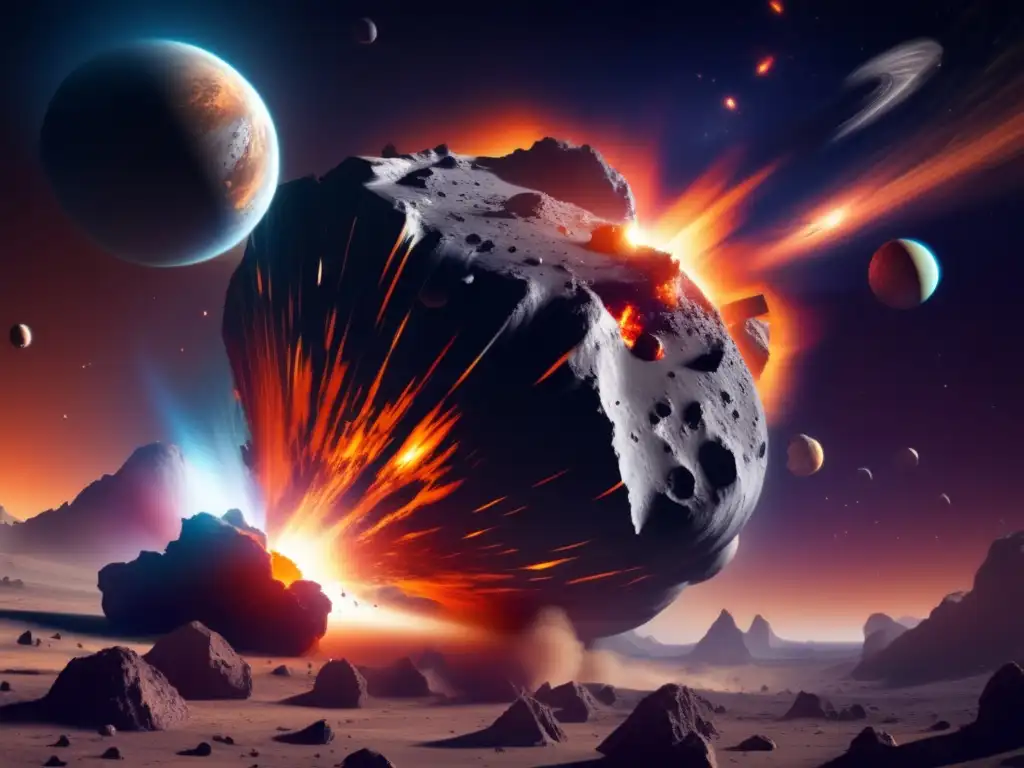
-
Can an asteroid impact cause the extinction of all species on Earth?
While it is possible, it's highly unlikely that an asteroid strike could wipe out all life on Earth. However, it can certainly have a significant impact on ecosystems and lead to the extinction of specific species.
-
What is the likelihood of a catastrophic asteroid impact in the next century?
The chances of a catastrophic asteroid impact occurring in the next hundred years are relatively low. However, it's still essential to be prepared and take necessary measures to minimize the potential damage such an event could cause.
-
How do scientists identify potential asteroid threats?
Scientists use advanced telescopes and sensors to detect potential asteroid threats. They analyze the asteroids' size, trajectory, and composition to determine their potential impact on Earth.
-
How can we prevent an asteroid from striking the Earth?
Several methods are being developed to prevent asteroids from striking the Earth. These include using nuclear weapons, kinetic impactors, and gravity tractors.
-
What can individuals do to prepare for a potential asteroid impact?
Individuals can prepare for a potential asteroid impact by staying informed about the latest developments in asteroid detection and mitigation efforts. They can also make contingency plans and emergency preparedness kits to ensure their safety in case of an impact.
Conclusion
Asteroid strikes have proven to be a significant force in shaping the Earth's history, leading to changes in climate, landscapes, and ecosystems. While the possibility of a catastrophic impact in the future still exists, there has been tremendous progress in detecting and mitigating the impact of asteroids on our planet. By remaining vigilant, investing in research and development efforts, and being prepared for any eventuality, we can minimize the impact of these potentially devastating celestial objects.
Thank you for reading this article on asteroid strikes and extinction events. We encourage you to share your thoughts and opinions in the comments section below and to visit www.asteroidrealm.com for more exciting content related to asteroids.
Additional Resources
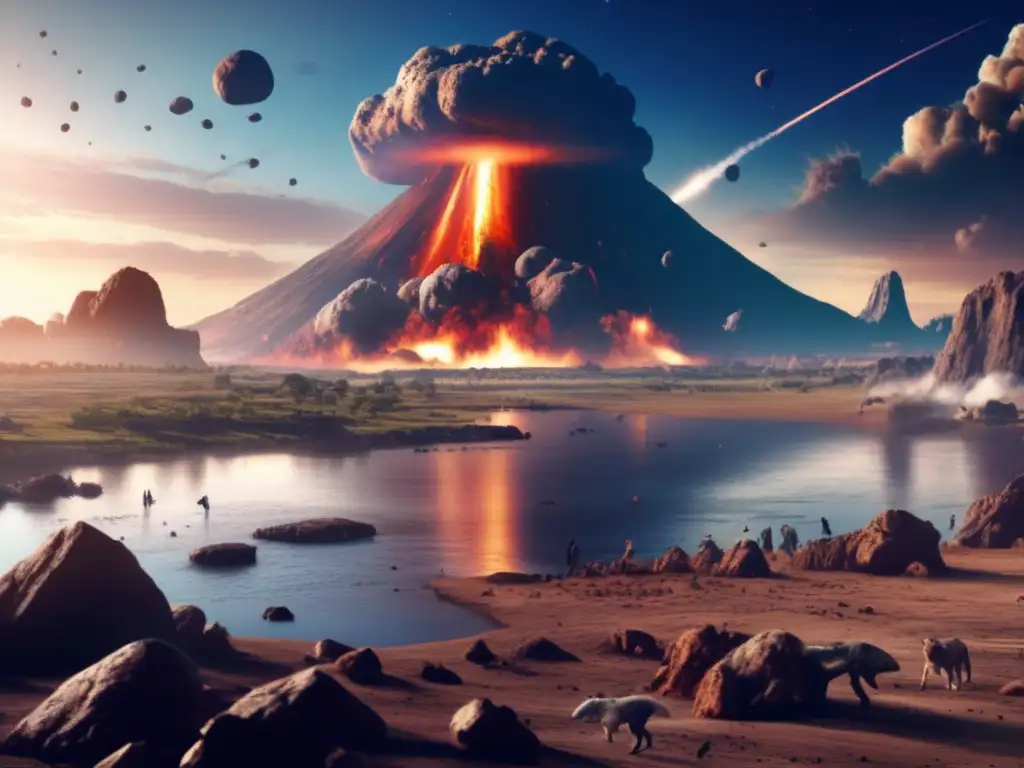
 Unseen Disasters: The Threat Of Undetected Asteroids
Unseen Disasters: The Threat Of Undetected Asteroids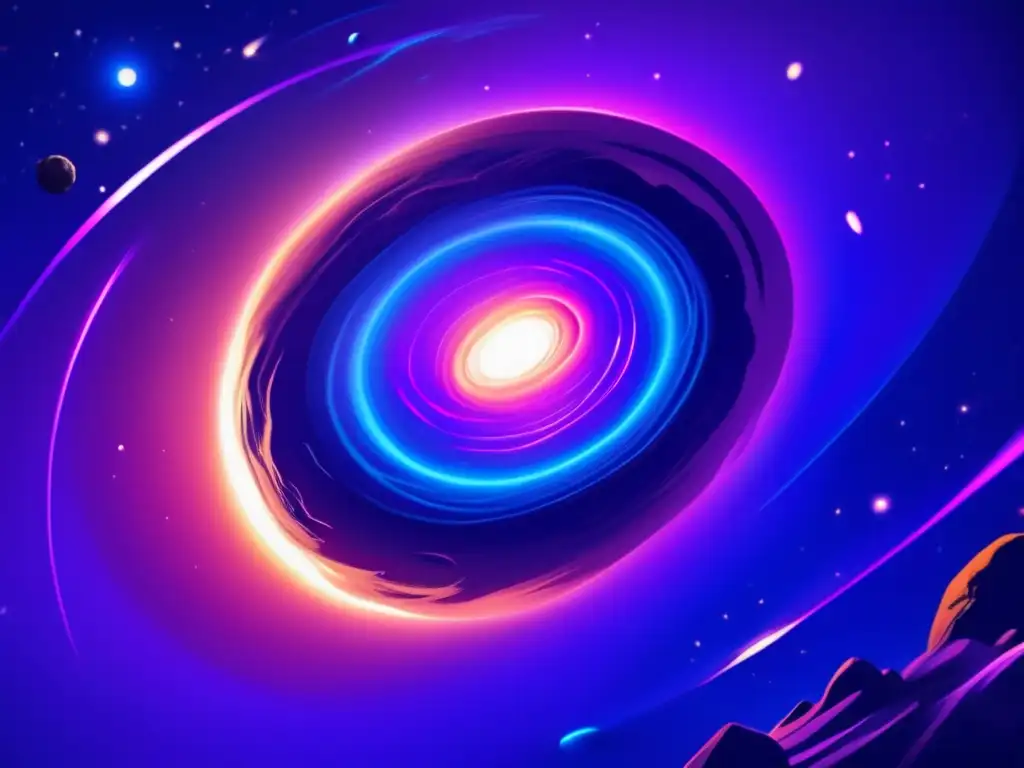 Quantifying The Impact: How Scientists Measure Asteroid Collisions
Quantifying The Impact: How Scientists Measure Asteroid Collisions In The Wake Of Destruction: Post-Impact Ecosystems
In The Wake Of Destruction: Post-Impact EcosystemsIf you want to discover more articles similar to Asteroid Strikes: A Catalyst For Extinction Events?, you can visit the Asteroid Impacts category.
Leave a Reply

Articulos relacionados: